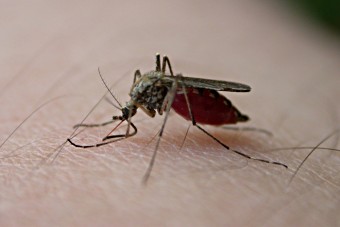
Geneva, 9 November 2012 - In response to the release of the latest interim data on the trial of malaria vaccine candidate RTS,S, Dr Seth Berkley, CEO of the GAVI Alliance, said:
“Malaria claims the lives of hundreds of thousands of children every year so evidence that it is scientifically possible to vaccinate children and babies against the disease and provide protection against malaria and severe malarial disease for a period of time is extremely significant. This is the first protozoa disease that we have convincingly been able to prevent in humans through immunisation.
“While the science is encouraging, today’s interim data showing lower efficacy of protection in infants at the age of the regular immunisation schedule as compared to previous results in older children raises questions from a public health perspective as this is the age group it would be most easy to distribute the vaccine to through the routine immunisation system and get maximum protection from the effects of malaria. More data on duration of protection using this and other vaccine schedules will be important to understand what the vaccination strategy can be and how an efficacious vaccine with a good duration of protection can be used in the relevant settings.
“GAVI is committed to making cost-effective investments in vaccines that protect the lives of the most vulnerable. We await the publication of the full trial results to understand the potential role of RTS,S in Malarial control.
“An efficacious malaria vaccine has the potential to change the lives of millions of people in some of the world’s poorest countries. A licensed vaccine would join bed nets, insecticide spraying and anti-malarial drugs as ways of protecting the most vulnerable from malaria.”
Further information on the RTS,S trial
The RTS,S malaria vaccine candidate has been under development since the 1980s with partners from the public and private sectors. The collaboration involves researchers in many GAVI-eligible countries in Africa, including Burkina Faso, Gambia, Ghana, Kenya, Malawi, Mozambique, and Tanzania, and in the United States and Europe. In January 2001, GlaxoSmithKline Vaccines and the PATH Malaria Vaccine Initiative entered into a public-private partnership specifically to develop the vaccine for infants and young children living in malaria-endemic regions in sub-Saharan Africa.
A large-scale Phase III safety and efficacy trial began in May 2009. The study is being conducted in eleven sites across sub-Saharan Africa. The study has enrolled 15,460 infants and children in two age groups, 5-17 months and 6-12 weeks of age at the time of the first vaccination. First results on children aged 5-17 months were reported in October 2011 in the New England Journal of Medicine. Those results indicated that three doses of the RTS,S vaccine candidate reduced clinical and severe malaria over the first year of follow-up by an estimated 56% and 47%, respectively, in children 5-17 months of age at first vaccination and who received the routine DTPw-HepB/Hib vaccine prior to the RTS,S vaccine. The results published in November 2012 provide an indication of vaccine efficacy in infants 6-12 weeks of age during one year of follow-up. These results in infants 6-12 weeks of age at first vaccination, who received the RTS,S vaccine together with the routine DTPw-HepB/Hib vaccine, suggest clinical and severe malaria was reduced by an estimated 31% and 37%, respectively. Vaccine efficacy was higher at the beginning than at the end of the follow-up period.
Children in the study were also provided insecticide treated bed nets, other interventions according to national policies, and ready access to malaria treatment. Insecticide-treated bed nets were used by and estimated 75% of the 5-17 month-old children and 86% of the 6-12 week-old infants.
Study centres / trial sites participating in the Phase 3 efficacy trial
- Burkina Faso – Nanoro, Institut de Recherche en Science de la Santé (IRSS) / Centre Muraz
- Gabon – Lambaréné Albert Schweitzer Hospital, Medical Research Unit
- Ghana – Agogo/Kumasi: School of Medical Sciences, Kwame Nkrumah University of Science and Technology; Kumasi Centre for Collaborative Research, Agogo Presbyterian Hospital
- Ghana – Kintampo: Kintampo Health Research Centre, Ghana Health Service
- Kenya – Kilifi, KEMRI-Wellcome Trust Research Program
- Kenya – Kombewa (Kisumu), KEMRI-Walter Reed Project Kenya Medical Research Institute
- Kenya – Siaya (Kisumu), KEMRI-CDC Research and Public Health Collaboration
- Malawi – Lilongwe, University of North Carolina Project at the Tidziwe Centre
- Mozambique – Manhica, Centro de Investigação em Saúde de Manhiça
- Tanzania – Bagamoyo, Ifakara Health Institute
- Tanzania – Korogwe, National Institute for Medical Research
- Tanzania, Kilimanjaro Christian Medical Centre
